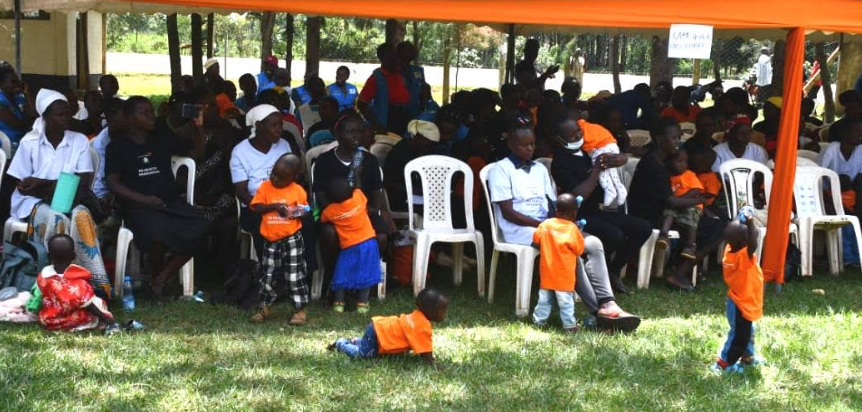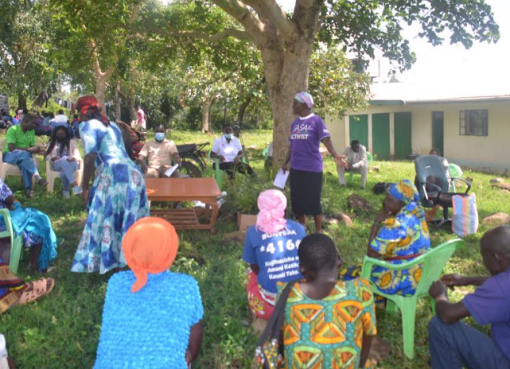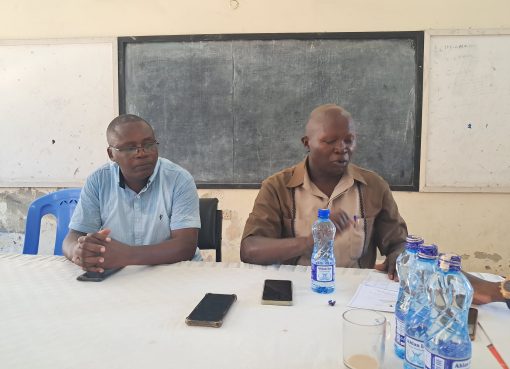The Kakamega Health Services Department has announced a significant drop in the county’s malnutrition rate in the last nine years, attributing it to sustained multi-sectoral interventions.
The County Executive Committee Member for Health Services, Bernard Wesonga, made the disclosure at Matete Sub-County Hospital during a graduation ceremony for 64 children who are beneficiaries of a 90-day rehabilitation exercise under the pilot Positive Deviance Hearth (PDH) programme targeting Chevaywa and Lwandeti wards.
“Our county has for a long time battled with malnutrition. In 2014, the malnutrition rate for the county stood at 28 per cent.
“However, through multi-sectoral collaborations and high-impact nutrition interventions such as the PDH, we have successfully brought down the rate to 11.5 per cent,” Wesonga disclosed.
Despite the major drop, Wesonga said more needs to be done by his department, other stakeholders, and the community to further reduce the rate.
He said, “We still have a lot of work to do, especially to achieve the PDH goals.
“We need to identify children with or at risk of malnutrition to quickly rehabilitate malnourished children, to enable families to sustain their rehabilitation at home independently, and to prevent further malnutrition among newborns in the community.
“Notably, the community must change its norms in childcare and health-feeding practices.
“Cultural beliefs and practices that do not promote good health for children should be put aside and good practices found in the community adopted.”
He added that the department is working on a multi-faceted approach involving other departments like agriculture, education, social protection, and water, which offer nutrition-sensitive solutions to the community.
Wesonga reminded stakeholders that the success of the PDH pilot programme in the two wards is a clear indicator that sustainable solutions to community problems already exist within them and just need to be discovered.
He noted that the PDH programme is a globally accepted intensive behaviour change nutrition approach that enables the channelling of resources to communities to help them independently address malnutrition with solutions that are affordable and sustainable.
“Congratulations to the parents of the 64 pilot beneficiaries and the healthcare workers for their commitment towards ensuring they graduate from malnourishment to better health. This graduation is proof that the programme can work,” he stated.
He appealed to the parents to share the skills and knowledge they have gained in the past 90 days with others and take care of their children to prevent the problem from recurring.
Wesonga lauded World Vision International and other partners for supporting the programme in Matete and ensuring its success through their agricultural and educational-based activities, urging them to replicate the same in other sub-counties.
Keziah Ouma from World Vision International called for more collaborative efforts from the county government and other stakeholders in order to scale up the programme to other sub-counties.
She lauded the county’s health department for its commitment to ensuring the successful implementation of the pilot PDH programme.
Positive Deviance Hearth Programme is an agri-nutritional programme sponsored by World Vision targeting malnourished children aged 6 to 36 months, identified by Community Health Promoters in Chevaywa and Lwandeti wards in Matete Sub County.
Under the programme, trainers and nutritionists take the identified children and their parents through a 90-day nutrition training and rehabilitation session. The children are weighed every 30 days to establish their progress and graduate once they achieve the recommended weight.
By Melechezedeck Ejakait





